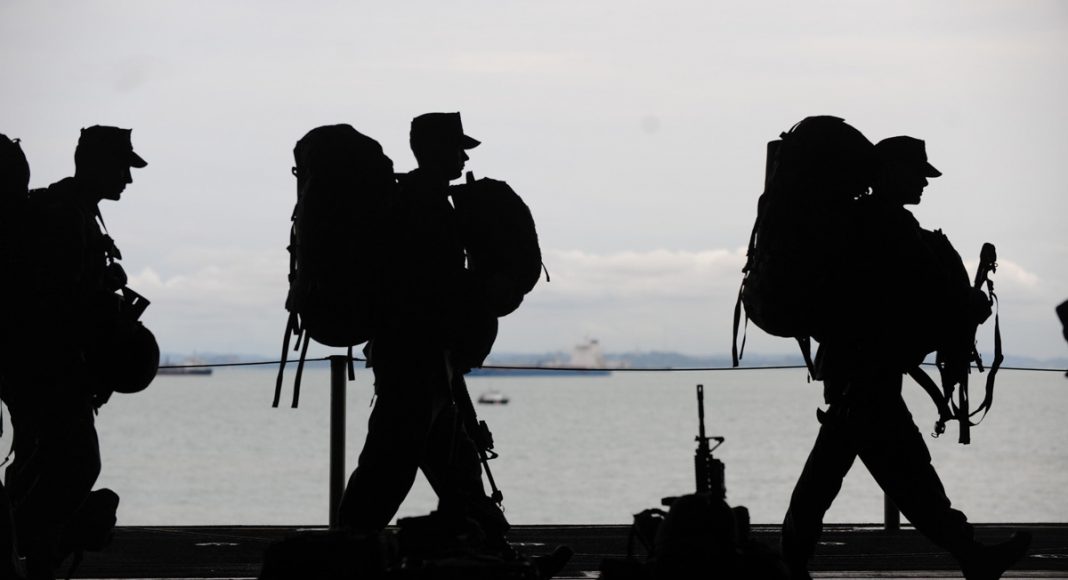The Memorial Day weekend is, for most folks, spent in a drunken stupor while soaking up the sun on a boat somewhere in Anywhere, USA. These summertime party people will suck down copious amounts of beer, knock back their weight in Jello-shots and choke down grilled, cylindrical meats with such rabid enthusiasm that their DNA will undoubtedly change in ways that will haunt generations to come. Going hard during those rare, three-day weekends is simply the American way.
But it is important not to forget that while the weekend may be the unofficial start to summer, it is also intended to pay homage to those men and women who have endured the horrors of the battlefield. Without the bravery and sacrifice of our veterans, the reality is none of us would have the freedom to enjoy these waterway festivities, backyard BBQs, or any of the other celebratory shenanigans that makes summer fun.
RELATED: When The VA Lies To Congress About Medical Marijuana, It Lies To Our Veterans
While Memorial Day is more about remembering those soldiers that have lost their lives in combat, we believe it is also a time to reflect on the living veterans as well. Civilians have been taught that these people are the real heroes, deserving of the utmost respect for their service to this country. Yet, the federal government, the faceless force that put these men and women in the line of fire in the first place, does not offer the same reverence. It could be argued that it never has.
Many veterans are suffering tremendous mental and physical strain from their time at war. And rightfully so. It is unnatural for human beings to process the savage atrocities that many of them have witnessed and even carried out. It’s the reason some are never really able to reenter society and have a semi-normal existence. They are bound by the severity of high anxiety, a condition also known as post-traumatic stress disorder (PTSD). So, they drink booze, pop prescription painkillers and anti-anxiety medication just to go numb. Others never find the right headspace to keep on breathing once they return home. Some reports show that around 20 veterans commit suicide each day.
But there is a way out of this madness.
Some veterans with PTSD say that marijuana has been instrumental in dealing with the reverberations of war – more so than prescription drugs. There is even research that supports these claims. A study published in the Journal of Psychoactive Drugs back in 2014 shows that medical marijuana is capable of easing the symptoms of this anxiety disorder in around 75 percent of patients. Other research shows that veterans using medical marijuana are less likely to commit suicide.
RELATED: Senators Introduce First Bill Allowing Veteran Access To Medical Marijuana
But while the herb is legal in more than 30 states for medicinal use, the federal government still flat out refuses to give veterans permission to use it.
As much as President Trump tries to give off the appearance of being a pro-veteran leader, his administration has shown us something else. The Department of Veterans Affairs recently struck down three pieces of legislation intended to provide veterans with legal access to medical marijuana and expand cannabis research. VA officials said as long as marijuana is illegal in the eyes of the federal government, veterans would not have the freedom “to use, possess, or transport medical marijuana” or “discuss the use of medical marijuana with a physician of the Department of Veterans Affairs.”
Still, Congress is the real snag when it comes to veterans having access to medical marijuana. It is clear that cannabis legalization is moving forward in the United States, yet neither chamber has made advancements to bring this concept to the national front. Even in the House, which is supposedly dominated by Democrats interested in legalizing marijuana, all of the reform efforts unveiled over the past few months have not really gained any traction. Unfortunately, these politicos hold all of the cards. But President Trump could apply some pressure to Republicans and get them to take leadership on the issue. As for now, significant progress on this matter seems unlikely in 2019.


